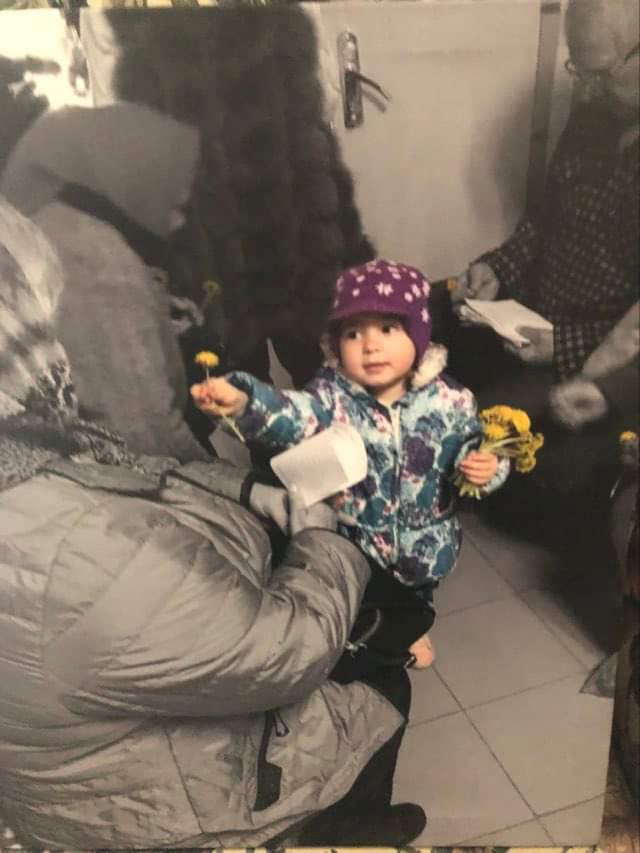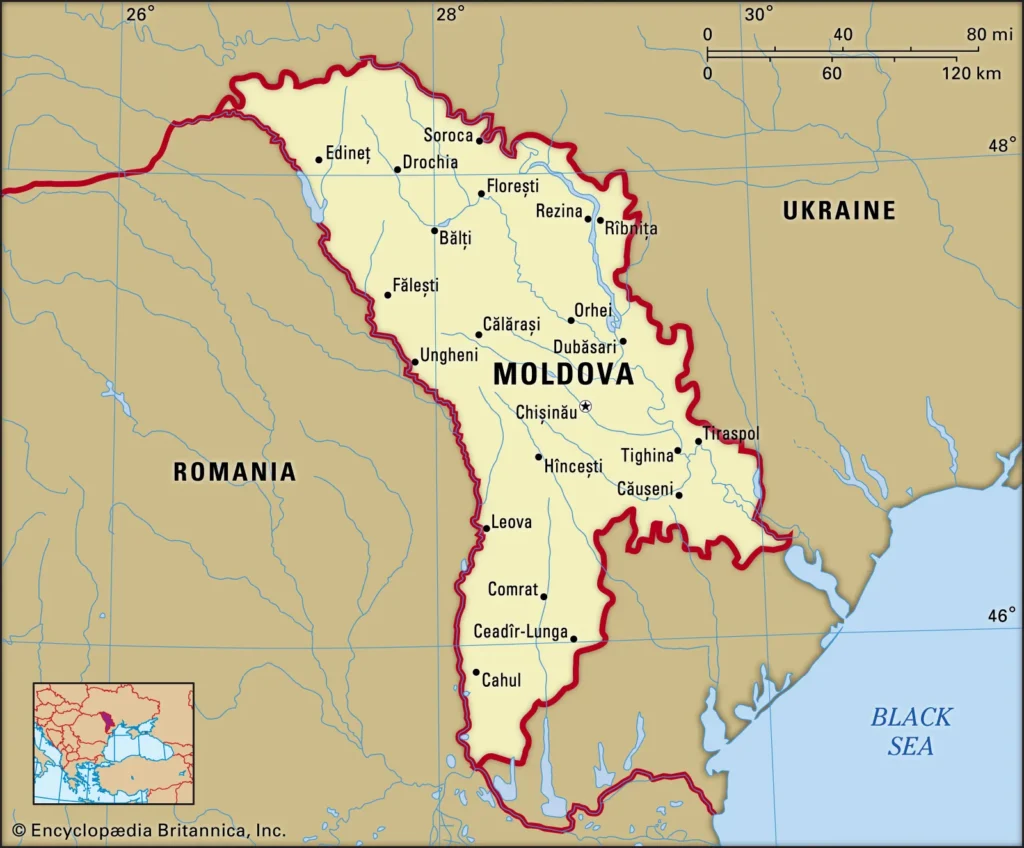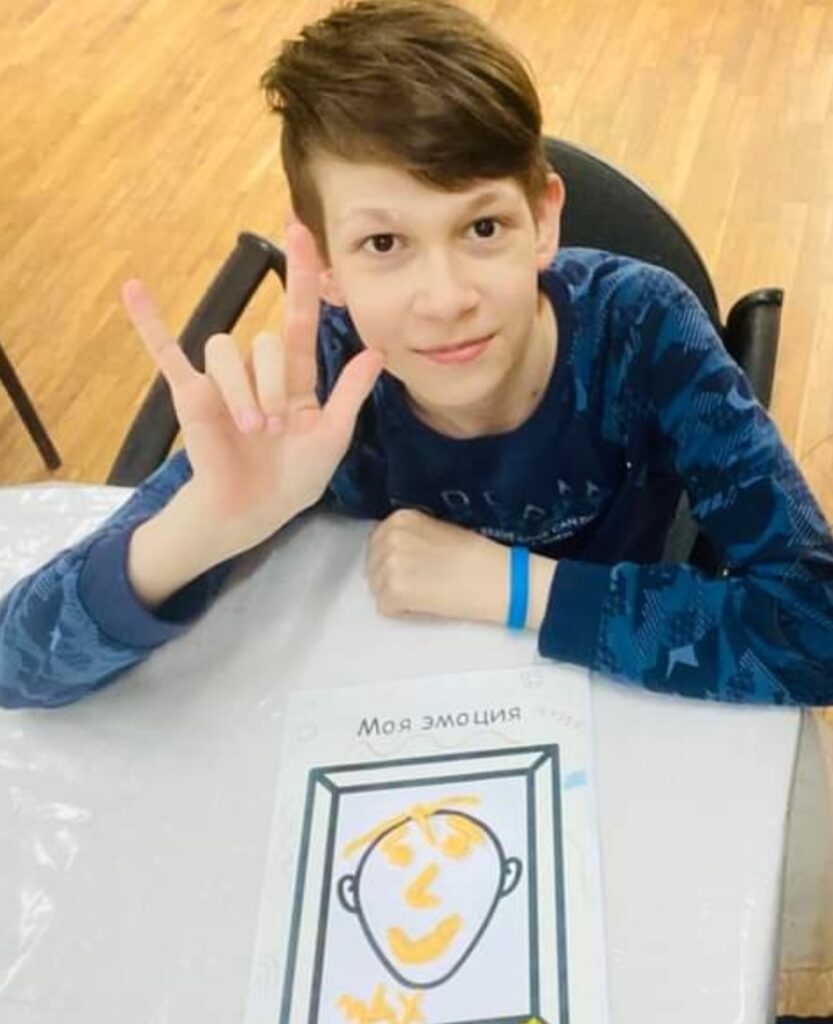
In 2022, shortly following the beginning of the Russo-Ukraine War, Sara had the privilege to serve as a trauma counselor for Ukrainian refugees at medical clinics in various villages in Moldova. During that time, she met and befriended two missionaries named Ross and Brenda Robinson and over time they developed a friendship that God would use to direct the paths of both David and Sara in their call to international missions. That same year, Ross and Brenda continued ministering in local medical clinics and during one visit, they encountered a child passing out dandelions to some of the other patients as they anxiously awaited their turn to see the medical professionals that would tend to them, bringing a smile to their faces and warmth to their hearts.

The story of Moldova is one that is rife with struggle and subjugation to foreign powers and as a result today, there is an understandable distrust of foreign authorities. After 49 years of Soviet rule, Moldova finally gained its political independence, but still suffers under the yoke of spiritual and emotional bondage. The people rarely smile in public, and to do so is often viewed as strange. Russian Orthodox religious leadership dominates the culture and often presents Protestant denominations as “dangerous” and even “evil”. The concept of the church is culturally tied to the building in which the members assemble, as opposed to the people that make up that assembly. As such, house churches and private group Bible studies are culturally referenced as “cults” in spite of the fact that nearly all mentions of the church in the New Testament were in fact house churches.
One of the great historical struggles of the people of Moldova has been poverty. Moldova has struggled as the poorest nation in Europe for many years. Often children would be temporarily or even permanently placed in orphanages while parents are forced to migrate to Romania or other countries just to find work. Even more so, children who are born with disabilities are left to orphanages to care for, and were generally aged out of the orphanages around 16 years of age. Reports of atrocious conditions in state-run orphanages were only exacerbated by the knowledge that orphanages became the hunting grounds for child traffickers around Europe, particularly as children aged out of the system with little to no job skills. In 2011, there were more than 11,000 children living in Moldovan orphanages, but that number has dramatically reduced to less than 2000 today, thanks in large part to the current Moldovan administration’s efforts to curb corruption and go on the offensive against child sex trafficking.

Deaf children are particularly vulnerable as two of the three deaf schools in Moldova have shut down due to lack of funds, leaving deaf children in remote villages without access to specialized education. This has resulted in many children having to travel into Chisinau to attend the only remaining school that provides education for deaf children. Otherwise, children have to either struggle while attending a local school with no sign language interpretation, or in many cases cross the border into Romania to attend specialized schooling there.
As one can imagine, economics and cultural stigmas regarding children with disabilities can make for a very challenging environment for families. Local churches across Moldova have been working to take on the challenge of meeting these needs through taking over management of previous state-run orphanages as private institutions. Local ministries that target the specific needs of various communities of persons with disabilities are springing up and are sharing not only the physical, educational, and emotional needs of these children, but they are actively seeking to share the gospel and disciple the children through theses challenges. However, they are often overwhelmed by a lack of funding and the skills needed to address specialized needs within the community.
David and Sara Noland have been called to go to Moldova to walk alongside the people and ministries of the Moldovan Baptist Union to offer their training in Biblical Counseling, Christian discipleship, leadership development, and church planting. They will serve as Team Associate missionaries alongside SBC International Mission Board missionaries in the country and partner with local churches to help train and develop the leaders in ways to serve these communities with the life-changing gospel of Jesus Christ. As Team Associates they will be required to raise their own funding in order to serve.
So how can you partner with us? Well here are a few ways you can help:
- First and foremost, we request your prayers. Not just for us as we prepare, but for the communities that we will be ministering to.
- The people of Moldova – After 46 years of being under the Soviet thumb and followed by 30 years of independence punctuated by poor economic conditions and weak infrastructure, they are a highly suspicious, honor-shame culture. This produces some extreme personal challenges to the acceptance of the gospel similar to those coming out of Islam and other Eastern religions. However, the people are a very warm and loving people buried under a hard, tough shell of resistance to embracing outside guidance and leadership. The current war in Ukraine next door lends itself to even greater suspicion as the country is preparing for an October 20 referendum on whether or not to officially pursue membership in the European Union. The country is nearly evenly divided on this issue between Russian loyalists and pro-EU sentiments, with a small contingent handing on to a desire to retain their own independence. Given Moldova’s history of subjugation to foreign empires, it’s no wonder that there is skepticism regarding trading in one foreign authority for another.
- The deaf community of Moldova – Currently they have very little access to the gospel or the Word of God in any form. Of the video resources available that provide Russian Sign Language interpretations of the Bible, we have only been able to locate the gospels of Mark and John in two separate apps. The IMB is working on a project to tell some specific Bible stories in the Russian Sign Language with the Deaf Pathways Bible app, but there are very few stories currently available. Additionally, there is a significant sign language divide in the community as some utilize Romanian Sign Language (younger generations) and most use Russian Sign Language (older generation due to history under the Soviet Union) and this adds a particularly difficult dynamic when attempting to offer translation services in congregations.
- The church leadership of Moldova – Many are faced with aggressive challenges from the Russian Orthodox church leadership, and Baptist churches in particular are singled out as “dangerous.” It is not uncommon for a local Orthodox priest to attend Baptist sponsored functions for the sole purpose of recording the names of attendees with the intent of persecution and retribution. While Moldova does explicitly and legally exercise freedom of religion as stated in their constitutional documents, the influence of old Soviet and Russian Orthodox hierarchies is still very prevalent in the culture and is even prevalent in ecclesiological practices.
- Pray for Sara and I as we prepare for the adjustment of our lives together.
- Pray us through spiritual warfare – Ever since we returned from Moldova this summer, having committed to our return, we have experienced tremendous spiritual attack from various angles that have sought to distract and demoralize us as we begin to adjust and prepare for our journey. We don’t ask that the warfare be taken away, but rather that we acknowledge the reality of what is happening and anticipate what the Father is teaching us through this journey.
- Pray that our visas are quickly processed – As our passports are still two years away from renewal, due to the closeness of this time period, we had to get our passports renewed early by mail. We anticipate this should only take about 8 weeks turnaround, but delays are typical especially in an election year.
- Pray for our financial resources – We have charted out a budget of what it will take to live through the next year and beyond, and we are trusting God’s provision for this journey. If you would like to prayerfully consider partnering with us financially, please reach out and we can have a discussion on what our specific needs are. While our cost of living in Moldova is significantly lower than in the US, our up-front relocation expenses are a particularly difficult challenge.
If you or someone you know would like to know how you can help, please reach out and let’s start a conversation. If your church is led to serve as sponsors, we would love to chat with you and share with you our specific needs and how you can help. Just click on the blue oval in the bottom right corner of this page to reach our scheduling page.